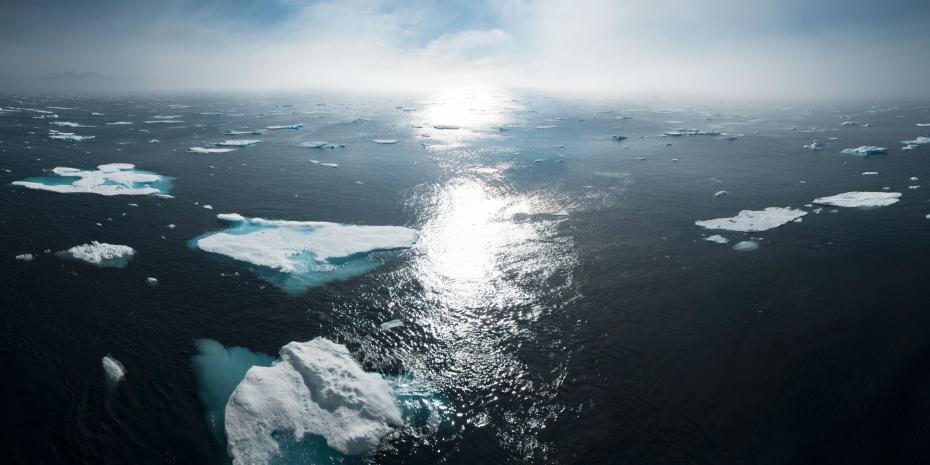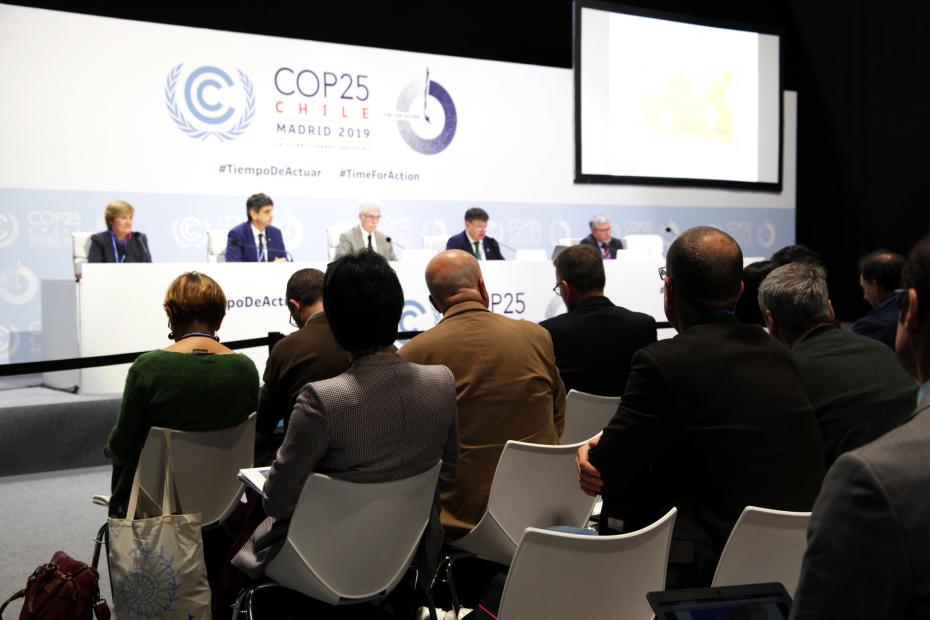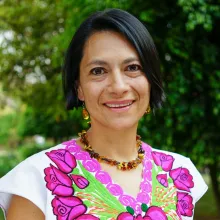
Six measures to ensure our actions achieve climate justice
Photo: Karsten Würth on Unsplash.On December 2, the twenty-fifth Conference of the Parties (COP25) to the United Nations Framework Convention on Climate Change opened in Madrid.
It’s a vital meeting for the planet, during which governments must drastically increase their ambitions and climate commitments if we hope to preserve life, as we know it today.
So far, there have been more announcements than actions. That’s why I’d like to highlight six measures that will help us move towards the results the planet needs.
The outlook is not encouraging. Change remains urgent. Every day, the climate crisis causes greater harm, particularly for the most vulnerable among us.
According to the United Nations Emissions Gap report, emissions continue to rise and current actions are insufficient to achieving the necessary reductions. In an evident political and financial weakening, nations that once led climate actions are now withdrawing or refusing to comply with the agreements.

Added to this are emerging social protests, particularly in Latin America. The governments of Ecuador, Chile and Colombia have declared curfews in recent weeks to deal with the serious situations in their countries; COP25 was moved from Santiago de Chile to Madrid. In some instances, abuse of force caused several deaths and hundreds of other injuries.
All this demonstrates the urgency of heeding the social call, of acknowledging and dealing with inequality, of finding solutions and building countries where all have a place.
One thing is clear: we’ve been moving in the wrong direction and we must change course.
We need profound changes in energy, transportation and food systems, as well as in the negotiation, decision-making and implementation of climate actions. This is essential if we are to arrive at peak global emissions as soon as possible, cut them in half by 2030, and reach zero emissions by 2050.
Significant efforts are undoubtedly being made. There are billion-dollar investments by governments, businesses, organizations and individuals. But it’s not enough.
We must stop and assess what is serving us and what is not; what we should continue to do and what we must do differently.
These six measures could make climate action more effective and help us achieve climate justice:
1. Include human rights as a transversal element (seriously).
Although it’s been a petition of social movements, indigenous peoples and organizations for decades, official recognition of human rights has yet to materialize. Responding to this call is vital to increasing the ambition and responsibility that is so needed.
While the Cancun and Paris Agreements refer to the importance of respecting human rights, their implementation has failed to include this perspective. This, despite the fact that human rights bodies have reminded States of their obligation to do so; and IPCC scientists have highlighted the importance of addressing social inequality and including the wisdom of indigenous communities as a fundamental element in resolving the climate crisis.
2. Ensure the effective participation of affected people and communities in the planning, discussion, decision-making and monitoring of climate actions.
Indigenous peoples, rural communities, Afro-descendants, and youth are among the groups most affected by the climate crisis. In addition, local communities have protected millions of hectares of forests and other natural areas, essential for climate resilience. Yet spaces for the participation for these actors remain scarce and spaces for decision-making, in COPs and other instances, are almost non-existent.
Ensuring that discussions and decisions are truly diverse is an essential step towards increasing climate ambition and effectiveness. Communities should be considered subjects of rights, not simply objects of protection projects and actions.
3. Secure the equitable distribution of funds
We live in the midst of immense inequality, where wealth, property and privileges belong to a few, while the majority assume the negative impacts. The climate crisis is partly a result of this situation.
Although Latin America is the most unequal region on the planet, inequality is underestimated, according to ECLAC. That’s why the distribution of economic and human resources must address this reality, ensuring that the Global South has access to opportunities to participate on equal footing towards true climate justice. This would increase the possibility of finding alternative solutions and replicating those already in place.
4. Hold accountable those responsible for the climate crisis
Those causing the climate crisis should be held accountable for it, instead of attacking those who seek accountability and climate justice. This is one of the great obstacles to moving forward. It’s time to name those responsible and demand that they take charge and repair the damages, rather than accepting false solutions and ineffective voluntary actions.
5. Incorporate a feminine perspective, based in maternal love
By this I mean the need to rescue a perspective of collaboration and serious dialogue in order to reach consensus, assuming responsibilities over differences and competition.
Let us include a perspective that prioritizes the care of the Earth, of nature and of people. Let's stop putting economic interests and short-term vision above the health of our planet. Let's focus our efforts on agreeing how we can achieve climate justice, coming out of denial, and leaving behind excuses about why it can't be done.
6. Acknowledge the true costs of the climate crisis: social, economic, environmental and human.
So far most economic assessments have focused on calculating the costs of the transition to a zero-emission economy. While there are estimates of the costs involved in not implementing the transition, these ignore the social, environmental and cultural impacts.
This is particularly significant for regions such as Latin America, which, in addition to suffering human and cultural losses, are losing their natural wealth. Scientists have concluded that the changes will be more costly the longer they take to be implemented.

COP25 could be an opportunity to incorporate these and many other measures in the battle against the climate emergency. At this point, insisting on the same thing will only bring more frustration and failures. Not taking action will condemn millions more people to suffer the consequences of the climate crisis, and of inadequate solutions that violate their rights.
The reality is indisputable, which makes it imperative to include human rights as the crosscutting axis of our climate actions.
If we do not, the actions resulting from the Conference of the Parties will resemble the emperor of the Brothers Grimm’s story. They will come out to the parade naked, proudly wearing a costly suit made with climate ambition, yet insufficient for what the planet needs.
We must instead cover climate actions with a suit of climate justice—a visible one that we must weave together.
We have no time to spare.
Astrid Puentes

Astrid Puentes Riaño was one of the two Co-Executive Directors of AIDA (2003-2021). She was responsible for AIDA’s legal efforts and organizational management. Originally from Colombia, Astrid has significant experience linking environmental protection with human rights, and climate change, highlighting the importance to prioritize climate justice. For over twenty years she has been working on public interest litigation, especially in the field of human rights, the environment, and climate change. Astrid holds an LL.M. in Comparative Law from the University of Florida, a Masters in Environmental Law from the University of the Basque Country, and a J.D. from the Universidad de Los Andes, Colombia. Astrid has also taught several seminars and classes on human rights, the environment and climate change, including at American University Law School in Washington, and the Universidad Nacional Autónoma de México (UNAM).
